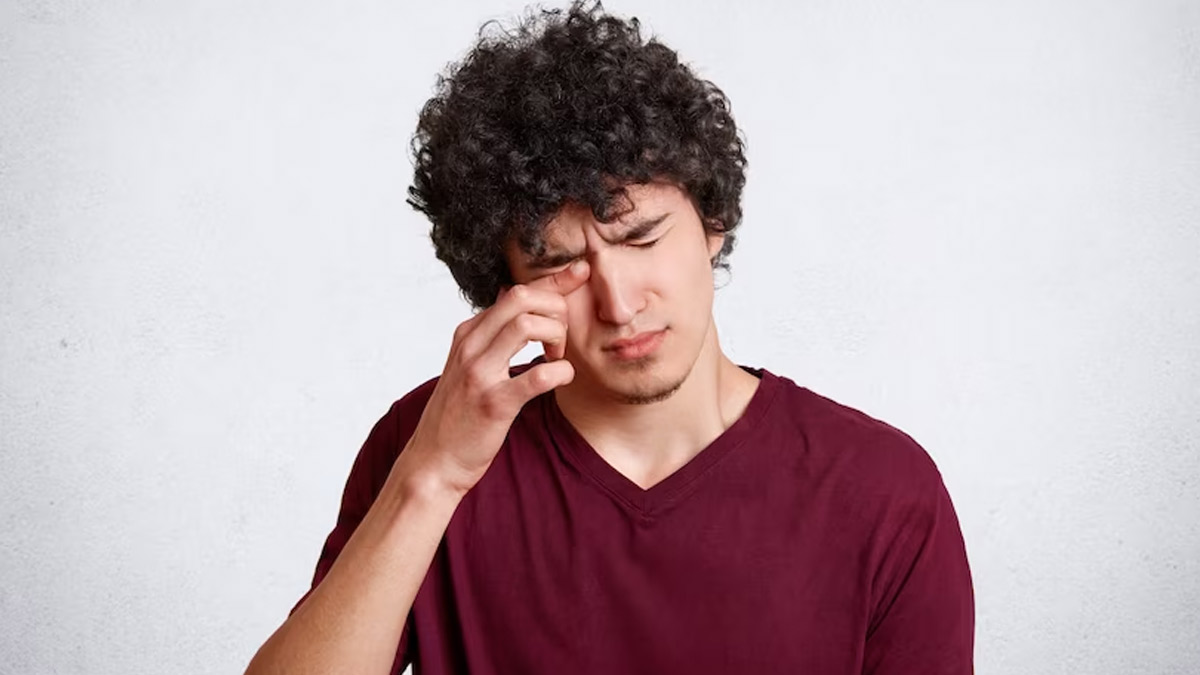
Have you ever experienced that peculiar sensation when your eyelid suddenly starts twitching uncontrollably? The superstitions surrounding it may be familiar to you. When your right eye twitches, it is great news, but when your left eye twitches, it may be worse. However, the cause of eye twitching lies beyond the superstitions and is more of a medical condition.
Table of Content:-
This involuntary fluttering of the eye, known as eye twitching or eyelid twitch can be bothersome, especially when you don’t know how to stop it. But worry not, as Dr Ajay Sharma, Chief Medical Director, EyeQ, helps us understand the causes and ways to stop eye twitching.
Various Types Of Eye Twitching

Dr Sharma said that eye twitching is an uncontrollable muscle spasm of the eyelids. It is rather typical and usually affects the upper eyelid, however, it can also happen to both lids. He added that three varieties of eye twitching are the most prevalent, which are as follows:
- Myokymia
- Blepharospasm
- Hemifacial spasm
Myokymia
Dr Sharma said myokymia is the most typical form of eye twitching brought on by lifestyle-related causes. It is a muscle's natural spontaneous contraction and is more prevalent in the lower eyelids. It passes quickly and can be controlled by making a few lifestyle changes.
Hemifacial Spasm and Blepharospasm
Dr Sharma said, "More severe cases of blepharospasm can linger for seconds, minutes, and perhaps even hours. The spasm can be severe enough to cause you to close your eyes. With an underlying hereditary medical issue, these conditions are more dangerous and may necessitate a doctor's visit."
Eye Twitching Causes And Treatment

Dr Sharma said that brain or nerve abnormalities can cause eye twitching in a small percentage of patients. These include Parkinson's disease, multiple sclerosis, bell palsy, dystonia, cervical dystonia, and Tourette syndrome."
Apart from this, common lifestyle factors can also contribute to eyelid twitching, such as stress, insufficient sleep, or allergies.
Stress
Dr Sharma said that stress is one of the most frequent reasons for eye twitching. It is essential to get rid of stress if you notice eye twitching. You may relax and take deep breaths, meditate, or try performing any other stress-busting activity.
Eyestrain
From mobile phones to laptops, your eyes seldom get breaks from digital screens, leading to eye strain. This may also be a reason for eye twitching. It's time to take regular breaks from your screen if you spend the entire day in front of one.
Sleep Deprivation
You may also experience eye twitching if you are under-rested or sleep deprived. Dr Sharma informed me that it is important to get at least 7-9 hours of sleep. Your eyes can relax from the visual stimulus they experience during the day while you sleep. Therefore, take some extra time to give your body a rest.
Excessive Coffee Consumption
Your body gains too much energy from drinking too much coffee. If the caffeine consumption is excessive, try cutting back and see if it makes a difference.
Wet Eyes
Another factor for eye twitching is dry eyes, which can be fixed by using artificial tears.
Disclaimer
This article contains information from an expert, but we recommend consulting your healthcare specialist for a diagnosis based on your body type and medical history.
Also watch this video
Read Next
From Cardiovascular Complications To Mental Health Challenges: Hidden Dangers Of Extra Muscle Fat
How we keep this article up to date:
We work with experts and keep a close eye on the latest in health and wellness. Whenever there is a new research or helpful information, we update our articles with accurate and useful advice.
Current Version
